The journey of these two characters, the old woman and the child and their interactions, will highlight several themes:
The journey
This journey is as much physical as inner. Every journey is a school of patience. The journey is often a pause that allows us to question and rediscover the center and the meaning of our life. In India, the slow, uncertain, random and risky means of transport transform each journey into a pilgrimage.
In some cultures, a journey (by train, by bus, on foot) is not measured in kilometers but in hours, days, weeks, encounters and exchanges.
Here the slow and difficult step of the character Cybèle breaks with the continuous search of our world for more celerity, for more efficiency.
This slowness leaves the place, we imagine, to an interior and intimate movement, to the wanderings of the thought loaded with stories of this old woman, creating the mystery, opening on our own imaginary. Our reverie is then harmonized on this same tempo.
The transmission
This transmission is symbolized here by the light carried by the "mère veilleuse", Cybele.
The transmission is also physically embodied, the objective for the child is to start walking in turn.
But it is also a question of transmission of values, of memory (without memory time disappears) and of continuity, without freezing the acquired: the inheritance transmitted is each time, reworked, reinterpreted, metamorphosed to be integrated.
The relationship between the two characters also questions the form of transmission: here, the "mère veilleuse" is mute, the teaching does not take place orally.
The transmission is experienced through the path taken together, by two people, through the rhythm imposed by the old woman's steps, and through a different view of the world around them: both experience the world through views that feed each other, Cybele has her gaze fixed on the few meters beyond her feet, while Poti, perched on her shoulders, can see the path to be travelled more widely...
The desire to learn and grow in order to "take one's place" in turn
The inner journey of this child in this show is driven by the desire and the need to emancipate himself, to take his first steps in this world, to take his turn.
It will also be a question of questioning this sensitive moment of passage: these ambivalent feelings between exaltation and hesitation, between the desire of what one tends towards and the fear of the unknown; the fear of the setting in movement which necessarily passes by a state of imbalance. This fragility which is the basis of all experience and all growth...

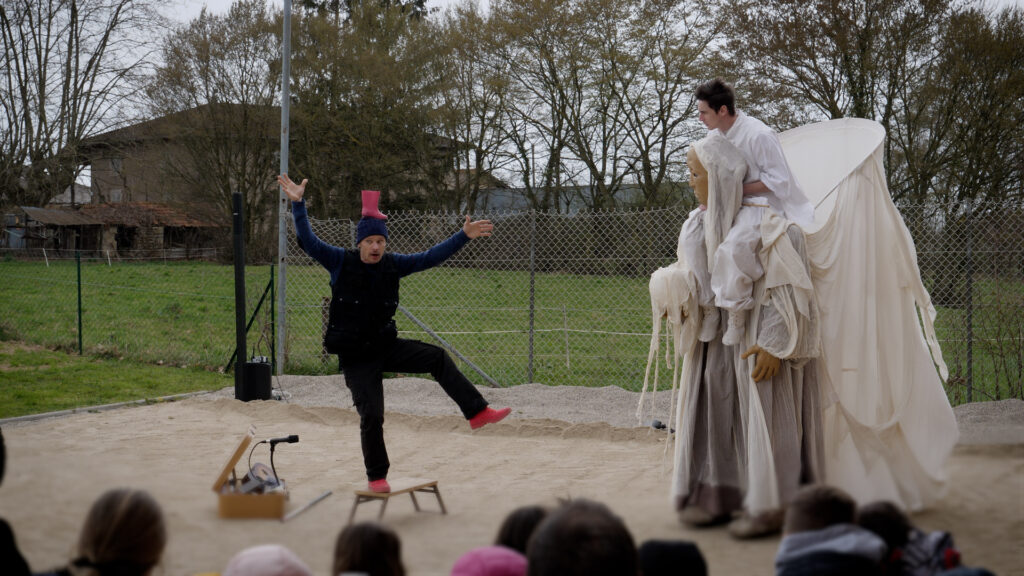 Photo : Victor Cointin
Photo : Victor Cointin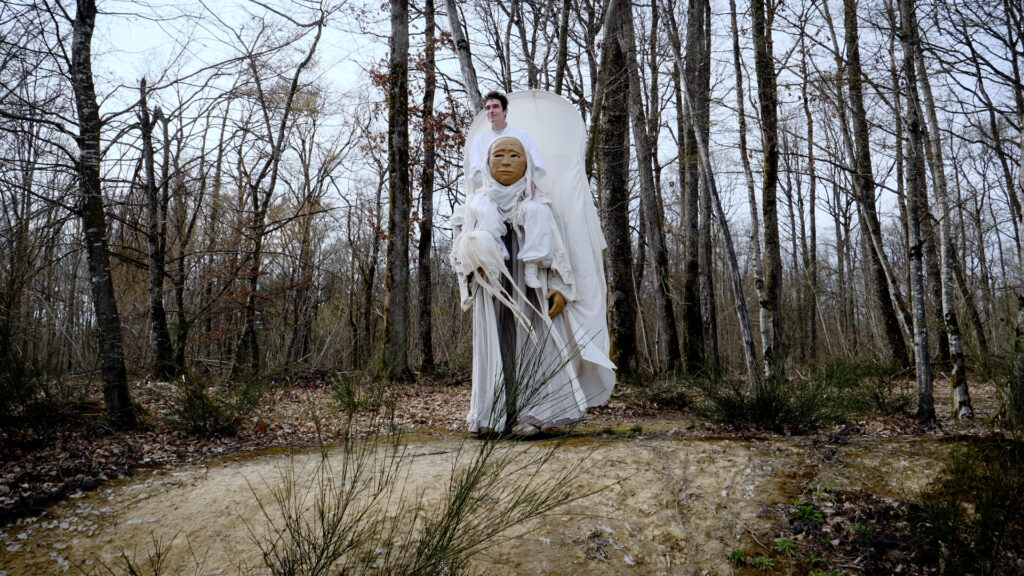
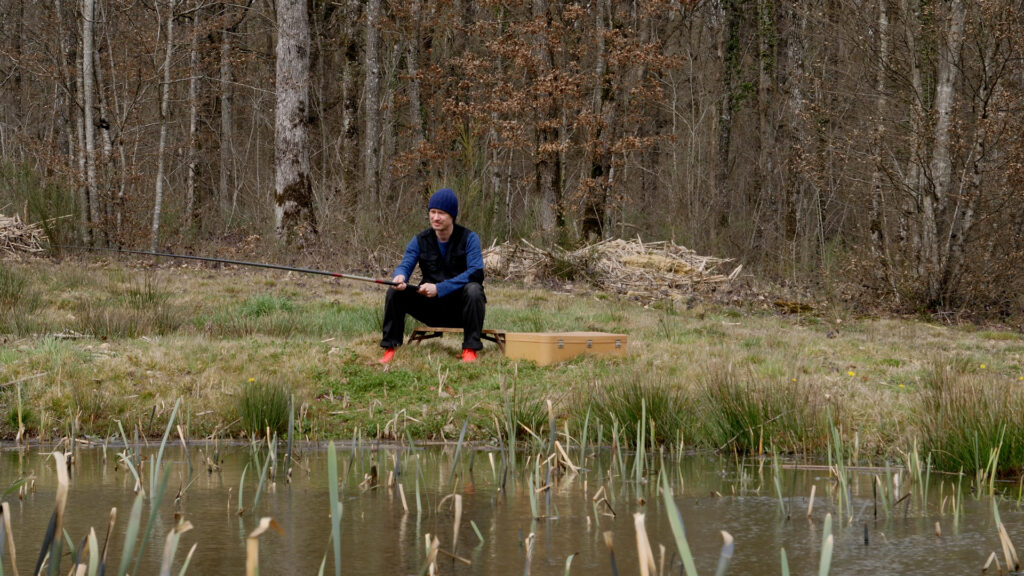
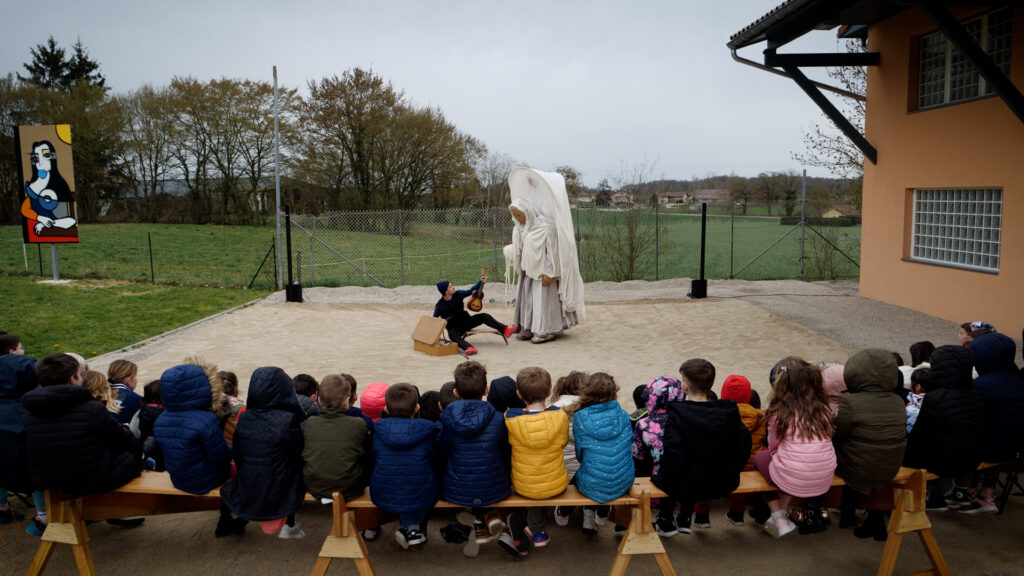 Photos : Victor Cointin
Photos : Victor Cointin
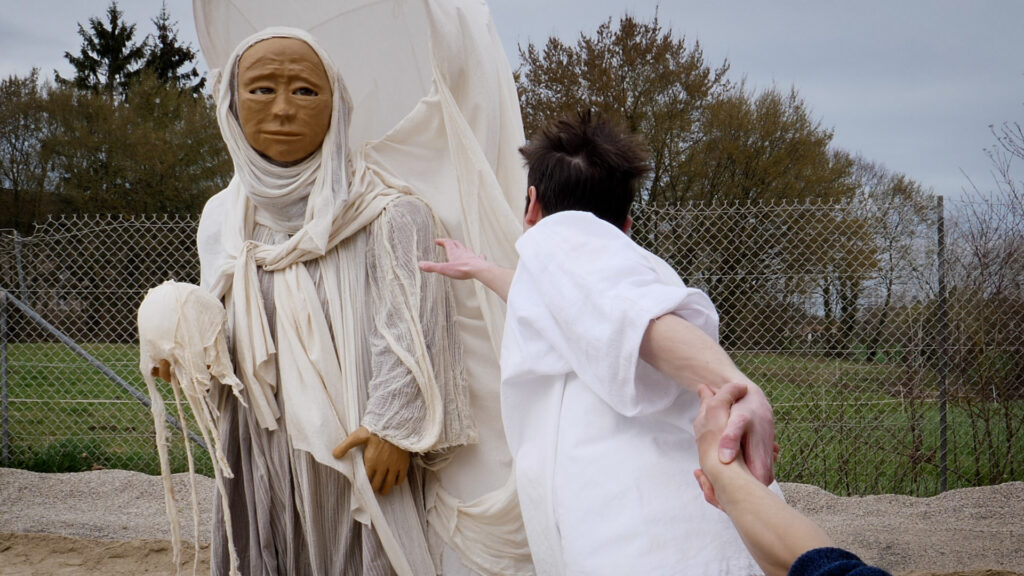 Photo : Victor Cointin
Photo : Victor Cointin

